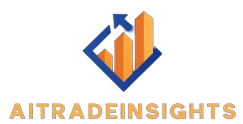The legality of using AI for stock trading might seem like a complex issue. However, this article clarifies the legal landscape surrounding this practice. We’ll explore relevant regulations and address any misconceptions about the legality of AI-driven trading, providing you with a clear understanding of the legal framework in this evolving field.
AI in Stock Trading: A Revolution
Artificial Intelligence (AI) has ushered in a transformative era in stock trading, reshaping the landscape of financial markets. The integration of advanced algorithms and machine learning technologies has brought unprecedented efficiency and speed to trading activities. Traders and investors now rely on sophisticated AI systems to analyze vast amounts of data in real-time, enabling quicker decision-making and more precise predictions.
This revolution has not only streamlined trading processes but has also enhanced market accessibility. AI-driven trading systems can operate 24/7, allowing for continuous market monitoring and execution of trades. The ability to process immense datasets at remarkable speeds gives traders a competitive edge, providing insights that were previously unattainable through traditional methods.
However, with this revolution comes a spectrum of benefits and risks. While AI offers opportunities for improved profitability and reduced human error, it also introduces complexities related to regulatory compliance and ethical considerations. The dynamic nature of financial markets, coupled with the rapid evolution of AI technologies, adds an extra layer of intricacy to the legal landscape surrounding stock trading activities. As we explore the legalities of using AI to buy and sell stocks, it becomes imperative to navigate through this revolutionary paradigm while considering its multifaceted implications.
Regulatory Framework
The use of Artificial Intelligence (AI) in stock trading operates within a regulatory framework that aims to strike a delicate balance between fostering innovation and safeguarding market integrity. This framework is essential to ensure fair practices, prevent market abuses, and maintain investor confidence.
Existing Regulations
The regulatory landscape governing AI in stock trading encompasses a range of pre-established rules and guidelines. Financial regulatory bodies, such as the Securities and Exchange Commission (SEC) in the United States or the Financial Conduct Authority (FCA) in the United Kingdom, have developed and implemented regulations to oversee the use of AI in financial markets. These regulations often address issues like transparency, algorithmic accountability, and risk management.
Boundaries and Limitations
Despite the innovative potential of AI, there are clear boundaries set within the regulatory framework. These limitations are designed to curb the misuse of AI for unfair advantages or market manipulation. Regulatory bodies continually assess and update these boundaries to adapt to the evolving technological landscape and emerging risks.
International Coordination
The global nature of financial markets necessitates coordination between regulatory authorities worldwide. International collaboration is crucial to create harmonized standards and protocols for AI in stock trading. Forums like the International Organization of Securities Commissions (IOSCO) facilitate cooperation among regulators from different countries, promoting consistency and a shared understanding of the legal parameters surrounding AI-driven trading activities. This collaborative approach helps mitigate cross-border challenges and ensures a more cohesive global regulatory environment.
Insider Trading Concerns
Insider trading, facilitated by Artificial Intelligence (AI) in stock trading, raises significant legal and ethical concerns. The utilization of advanced algorithms and machine learning models to analyze vast amounts of data can provide traders with insights that may not be available to the general public. This asymmetry of information creates a scenario where individuals or entities with access to AI-driven trading systems may gain an unfair advantage in the market.
- Legal Consequences:
- Securities Laws Violations: Engaging in insider trading through AI-powered platforms violates securities laws, which prohibit the use of non-public information for trading purposes. Individuals or entities found guilty of insider trading may face severe penalties, including fines, imprisonment, and civil liabilities.
- Regulatory Enforcement: Regulatory bodies, such as the Securities and Exchange Commission (SEC) in the United States, actively monitor and enforce regulations related to insider trading. They employ sophisticated surveillance techniques to detect suspicious trading activities facilitated by AI algorithms.
- Ethical Implications:
- Fairness and Integrity: Insider trading undermines the fairness and integrity of financial markets by providing unfair advantages to a select group of individuals or entities. It erodes trust among market participants and undermines the principle of a level playing field for all investors.
- Market Manipulation: AI-driven insider trading has the potential to manipulate market prices and distort market dynamics. By exploiting non-public information, traders can influence stock prices, leading to market inefficiencies and distortions.
- Regulatory Responses:
- Enhanced Oversight: Regulatory bodies are enhancing oversight and surveillance capabilities to detect and deter insider trading facilitated by AI. They collaborate with market participants and technology firms to develop advanced monitoring tools capable of identifying suspicious trading patterns.
- Strict Enforcement: Regulatory authorities impose strict penalties on individuals or entities found guilty of insider trading. These penalties serve as deterrents and send a clear message that illicit trading activities, whether conducted manually or through AI, will not be tolerated.
Insider trading facilitated by AI poses a significant challenge for regulators and underscores the need for robust legal and ethical frameworks to safeguard the integrity of financial markets. As technology continues to evolve, regulatory responses must remain adaptive and proactive to address emerging risks effectively.
Automated Trading and Market Manipulation
The integration of Artificial Intelligence (AI) in stock trading has led to the rise of automated trading systems, which, while offering efficiency, also pose concerns related to market manipulation. AI-driven algorithms can execute trades at speeds and frequencies impossible for human traders, presenting both opportunities and challenges.
- Potential for Market Manipulation:
- Flash Crashes: The high-speed nature of automated trading, when coupled with AI, can contribute to flash crashes. These sudden and severe market downturns result from algorithmic trading strategies interacting in unexpected ways, leading to rapid price fluctuations.
- Layering and Spoofing: AI algorithms can be programmed to engage in deceptive practices such as layering and spoofing. These involve placing and canceling orders to create a false appearance of market activity, influencing other traders and impacting stock prices.
- Regulatory Challenges:
- Adapting Regulations: Regulatory frameworks are grappling with the need to adapt to the rapid evolution of AI in trading. Traditional regulations designed for human-driven trading activities may fall short in addressing the intricacies of automated trading systems.
- Algorithmic Transparency: The opacity of AI algorithms presents a challenge for regulators seeking to maintain market transparency. The lack of visibility into algorithmic decision-making makes it difficult to identify and prevent manipulative activities.
- Mitigating Market Manipulation Risks:
- Algorithmic Risk Controls: Implementing robust algorithmic risk controls is crucial for mitigating market manipulation risks. This includes mechanisms to detect unusual trading patterns, set trading limits, and automatically halt trading in the event of irregularities.
- Market Surveillance Tools: Regulatory bodies are investing in advanced market surveillance tools capable of monitoring and analyzing vast amounts of trading data in real-time. These tools help identify patterns indicative of market manipulation and enable timely intervention.
- Investor Awareness:
- Education and Awareness Programs: investors about the risks associated with automated trading and market manipulation is essential. Regulatory bodies and financial institutions can conduct awareness programs to empower investors with the knowledge to make informed decisions.
- Transparency Initiatives: Promoting transparency in automated trading practices builds trust among investors. Requiring disclosure of algorithmic strategies and providing clear explanations of trading practices can enhance market confidence.
Addressing the challenges posed by automated trading and market manipulation requires a collaborative effort between regulators, market participants, and technology developers. Striking a balance between fostering innovation and safeguarding market integrity remains a critical objective as AI continues to shape the future of stock trading.
Ethical Considerations
| Ethical Challenge | AI in Stock Trading | Regulatory Response |
| Unfair Advantages | The use of AI may provide unfair advantages to those with access to advanced algorithms, creating an uneven playing field. | Regulators are exploring ways to ensure fair competition, including guidelines on transparency and disclosure requirements for AI-driven trading strategies. |
| Lack of Accountability | The opacity of AI algorithms raises concerns about accountability, making it challenging to trace the decision-making process. | Regulatory bodies are pushing for increased algorithmic transparency, requiring firms to disclose their AI strategies and decision-making processes to maintain accountability. |
| Market Manipulation | AI can be programmed to engage in manipulative practices, influencing stock prices for personal gain. | Regulatory frameworks are evolving to detect and prevent market manipulation, with an emphasis on surveillance tools and penalties for illicit activities. |
Ethical considerations surrounding the use of Artificial Intelligence (AI) in stock trading are becoming increasingly prominent as technology continues to advance. The integration of AI introduces unique challenges that extend beyond legal boundaries, prompting discussions about responsible and ethical AI practices within the financial industry.
Investigating the ethical landscape involves addressing concerns related to unfair advantages, lack of accountability, and the potential for market manipulation. These challenges require careful examination to ensre that the benefits of AI in stock trading are balanced with ethical considerations.

